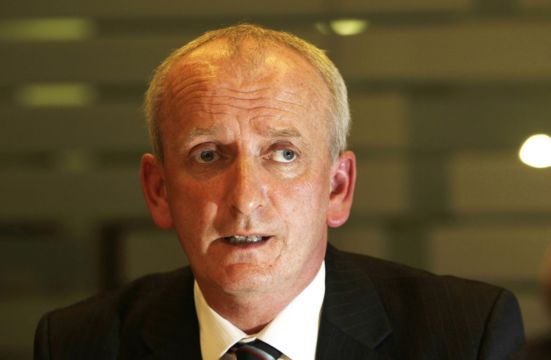The structure and organisation of the child welfare agency Tusla is “not good”, its CEO has warned.
Appearing at the Oireachtas Children’s Committee, Bernard Gloster raised serious concerns at the pace of attempts to reform the organisation.
He said reform of the agency in the areas of practice, culture and structure were “critical”.
Mr Gloster said: “I am aware that the board of the agency is seriously concerned at the pace of progress in respect of the change of the governance structure which we have decided and which requires approval outside of the agency.
“This change is central to addressing several deficits including performance and accountability.
“The current structure and organisation of the agency is to put it simply – not good. And while it remains, many problems will continue to occur and will require an over-centralised reactive response.”
'Serious issues'
The Tusla CEO outlined areas where “serious issues and challenges arise”, including what he described as “compliance with the high bar set in regulations” by the Health Information and Quality Authority (HIQA).
Providing a timely service to all children under Tusla’s brief was also identified as an issue, as was compliance with GDPR regulations.
Mr Gloster said the Tusla board had raised these concerns with the Children’s Minister Roderic O’Gorman and is awaiting a positive decision.
He was appointed as Tusla CEO in September 2019 and vowed to restore public trust in the often-controversial service.
On the impact of Covid-19 on Tusla’s services, Mr Gloster raised concerns over a significant reduction in referrals to the child welfare system.
We saw instances of referrals going from an average of 1,500 per week to 960
Advertisement
He said: “To give members some indication of the concern, we saw instances of referrals going from an average of 1,500 per week to 960.”
He added: “The impact was much more significant and severe in the first phase of lockdown. That was because schools were closed and a lot of other services were not routinely seeing children.
“All of that combined led to the very substantial concern that I talked about, reflected in the significant reduction in our normal referrals by almost 550 a week for a number of weeks.”
Mr Gloster said the outstanding cases requiring a priority response have since been dealt with.
Domestic violence
A surge in domestic violence incidents during the pandemic also caused issues for Tusla.
Due to public health advice around social distancing and limits on the number of people congregating in one location, the provision of accommodation for victims of domestic violence was affected.
Of an initial 139 available refuge shelters, 36 were forced to close during the pandemic.

But the agency has funded an additional 25 off-site units and an additional 15 safe homes, meaning there are now 143 accommodation sites open.
Nevertheless Kate Duggan, the national director of service and integration at Tusla, says the agency still has concerns about the situation.
She said: “The capacity at the moment is for 143 units, and 106 of those are currently occupied. Certainly we do share the concern in relation to access, particularly in certain parts of the country, being an issue.”







